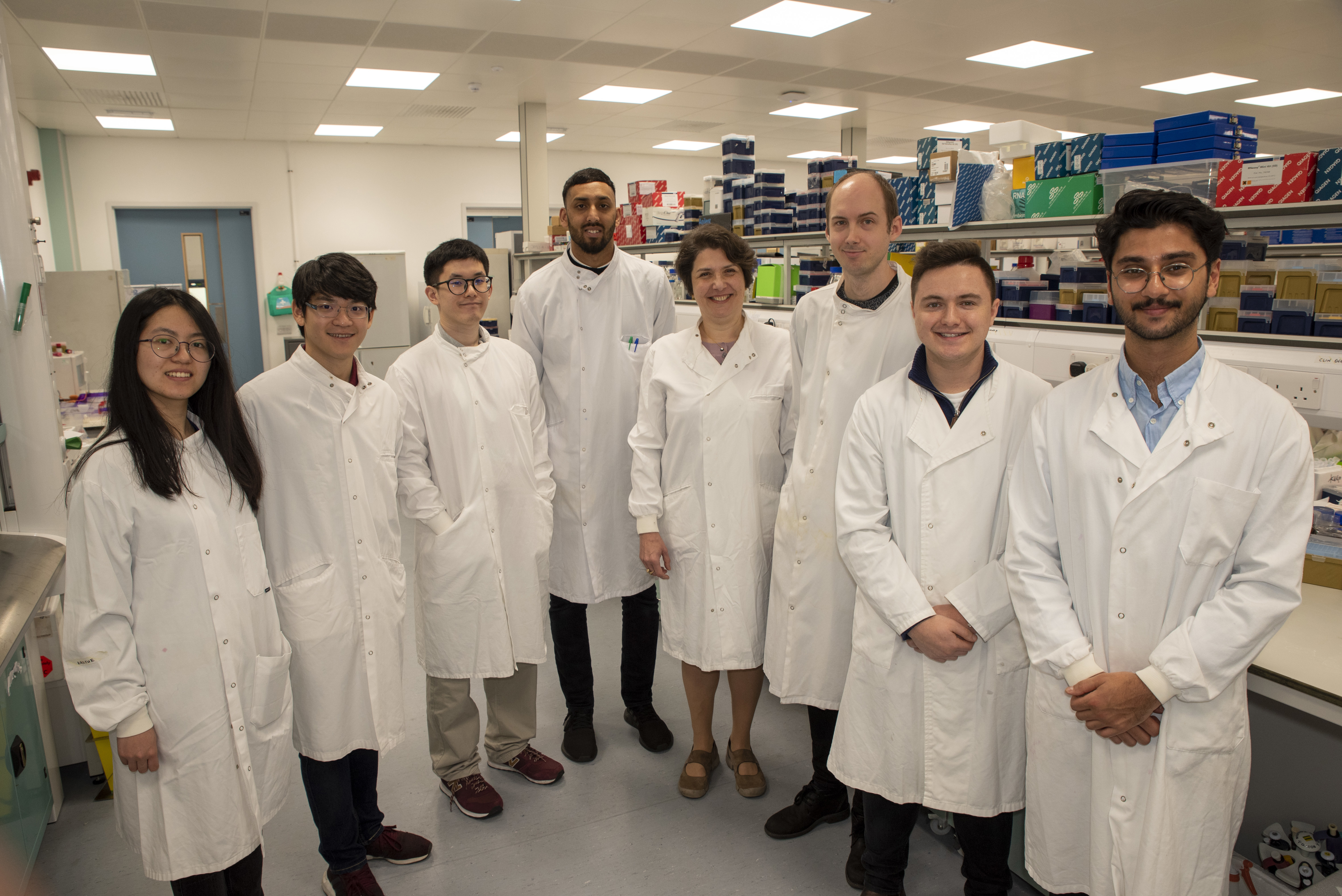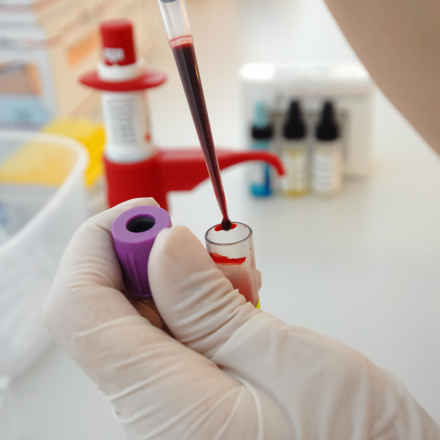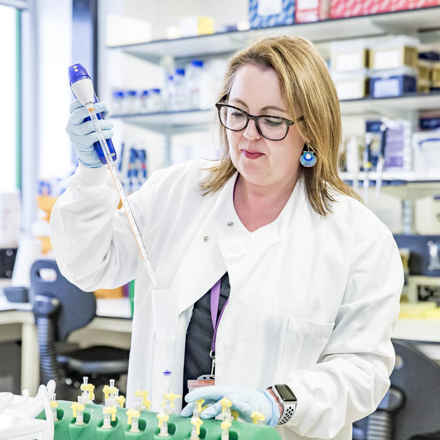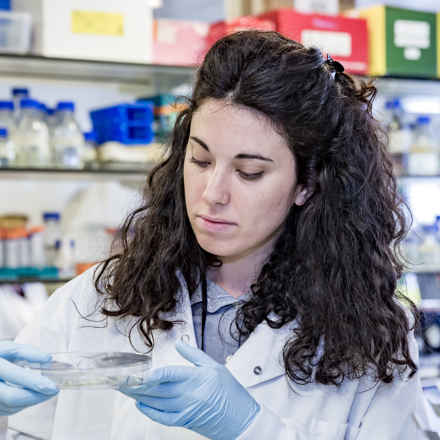
Our research projects
Since 1987 the Macular Society has invested around £10 million in over 100 research projects. Each year we invite applications for research grants, PhD studentships and seedcorn grants which are assessed by our Research Committee.
Research grants
Research grants are for projects of up to three years duration and up to £250,000, which covers everything from laboratory chemicals to salaries.
PhD studentships
A PhD studentship funds a student to undertake a three year research project. The student submits a thesis for qualification of the degree, which is the highest level of academic degree attainable.
Seedcorn projects
A seedcorn grant is funding of up to £25,000 to generate preliminary data to advance innovative and novel ideas.

Creating a blood test to detect early AMD
Understanding how AMD cells communicate and if this can be detected in blood samples.
Find out more

Switching off the genes that cause Best disease
Using new gene editing technique to turn off the faulty gene that causes vision loss in Best disease.
Find out more

A virtual VI rehabilitation assistant
Professor Dickinson is looking to create a ‘chat-bot’ to help answer patients’ questions about their macular disease or living with sight loss.
Find out more

New treatment option for wet AMD
Looking at a new protein for treating those with wet AMD who do not respond to anti-vascular endothelial growth factor (anti-VEGF) drugs.
Find out more

How genetic mutations in ABCA4 cause sight loss
Understanding how and why genetic mutations in the ABCA4 gene cause sight loss
Find out more

Using technology to aid functional vision
Changing how images are displayed to improve reading speed, face recognition and fine detail vision
Find out more
